This workshop is part of the DATAIA Workshops « Life Sciences & AI », a series of thematic events aiming to bring together scientific communities, experts and professionals from the disciplines concerned to share knowledge and challenges in these fields, consolidate a locally rooted research community and pave the way for the construction of joint projects.
| 9h00 - 9h30 |
Welcoming coffee - Introduction to the day |
|
9h30 - 10h30 |
« PixFruit: Digital agriculture for yield estimation in the tropical fruit sector » - Emile Faye (CIRAD, UPR HortSys) |
| 10h30 - 11h00 | Coffee break |
|
11h00 - 12h00
|
Talk session about two challenges:
|
|
12h00 - 12h15
|
Flash industrial talks : |
| 12h15 - 13h30 | Lunch Cocktail |
|
13h30 - 14h30
|
Round table « Challenges and issues of the AI industry in Agronomy »: Amine Benhenni (Dataswati), Benoît de Solan (ARVALIS), Philippe Stoop (itk), Yann-François Bizouerne (Bayer CropScience) - moderated by Sarah Cohen-Boulakia (LRI, Université Paris-Sud) and Claire Nédellec (MaIAGE-INRA, Université Paris-Saclay) |
| 14h30 - 14h50 | Coffee break |
|
14h50 - 15h50
|
Open questions on agronomy :
|
|
15h50 - 17h00
|
Methodological session :
|
| 17h00 | Cocktail |
Registration free but mandatory within the limit of available seats.
Event location:
DIGITEO MOULON
Rue Noetzlin
91190 Gif-sur-Yvette
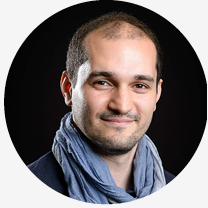
Amine is co-founder and scientific director of Dataswati, a startup that is developing an AI to help manufacturers produce better, by optimizing their costs and reducing their carbon footprint (French Tech Seed Paris-Saclay label).
After a thesis in theoretical physics, he has since developed a strong expertise in digital and data technology in various sectors (web, industry, banks/insurance, medical), from R&D to product, with clients and partners including laboratories, start-ups as well as the large public or private groups (CAC40 and NASDAQ).
He is also a lecturer, author, and he continues to teach (Université Paris Saclay, 3rd year classes at Centrale-Supélec, Exec. Master X, HEC,...) and to train and coach in business innovation.
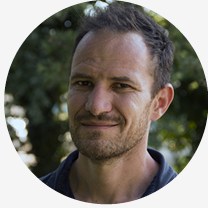 Benoît de Solan est depuis 2012 le responsable de l’Unité Mixte Technologique CAPTE à Avignon, associant notamment l’INRA et la société HIPHEN.
Benoît de Solan est depuis 2012 le responsable de l’Unité Mixte Technologique CAPTE à Avignon, associant notamment l’INRA et la société HIPHEN.
Expert dans l’usage des capteurs en agriculture au sein de l’institut technique ARVALIS, ses activités concernent toute la chaîne allant de la mesure jusqu’au conseil avec comme principaux domaines d’application le phénotypage variétal et l’agriculture de précision.
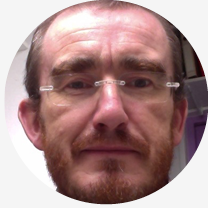
Bertrand Dubreucq holds a master's degree in organism biology from the University of Lille and a doctorate in plant biology from INRA.
After working in the Seed Biology Laboratory, he has been Director of Research at INRIA since 2013.
Thanks to his experience, he has acquired a solid expertise in the molecular genetics of plants. His technical skills are based on molecular biology, bioinformatics and imaging tools and are used to answer biological questions involving seed development. Its main objective is to understand the transcription network controlling the transition from embryogenesis to reserve accumulation using molecular genetics, data mining and modelling tools.

Christine Dillmann is Professor of Biomathematics at the University of Paris-Saclay (UFR sciences) and Deputy Director of the UMR Quantitative Genetics and Evolution-Le Moulon. A biologist by training, his research focuses on the evolution of life history traits in populations, the modelling of genotype-phenotype relationships, and the dynamics of adaptation. They are based on both mathematical modelling and the development of experimental evolution approaches (yeasts, maize, bacteria) and integrate issues related to the evolution of biological systems. His teaching activities aim to structure a training offer at the interface between biology and mathematics at the university level.
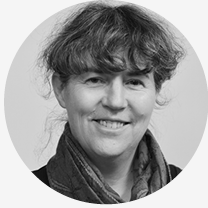
Dr. Claire Nedellec is permanent researcher at the mathematics, informatics and genomics (MIG) research laboratory since 2001. MIG is part of the French national institute of agronomy (INRA). She is at the head of the Bibliome research group.
She was assistant professor in Computer Science at LRI, University Paris-Sud since 1994 after she obtained her PhD on inductive logic programming (ILP) applied to cooperative learning apprentice.
Her current research interest focuses on the application of machine learning to knowledge extraction from text, for instance, ontology learning and extraction rule learning. She designs cooperative knowledge intensive machine learning methods to be applied to scientific and technical documents parsed by linguistic-based tools. She has been involved in many national and international collaborations and contracts in machine learning, knowledge acquisition and cognitive science, as researcher and scientific coordinator (Alvis, Quaero). She has been program chair of the European conference on machine learning, ECML 98. She was chair of BioNLP Shared Task 2013.

Denis Laloë is a quantitative geneticist and research engineer at INRA.
He leads the "Genomics, Biodiversity, Bioinformatics and Statistics" team in the "Animal Genetics and Integrative Biology" unit.
He has worked on aspects related to accuracy and connection in experimental designs of prediction models used in genetic evaluation.
Today, his areas of interest are the application of factor analysis methods to genetic diversity characterization and data integration.
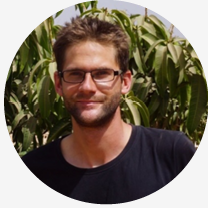 Emile Faye is a research scientist at the Horticultural System laboratory at CIRAD. He obtained his PhD in Ecology in 2015 at the Sorbonne University, Paris, France. He is currently based at ISRA, Dakar, Senegal, where he is conducting research in digital agriculture and spatial ecology to assess and enhance ecosystem services in tropical fruit agrosystems (fruit production, natural pest control…). With a long experience in developing countries (South America and Africa), his work focuses specifically on implementing innovative solutions to address the needs of the stakeholders of the fruit value chains (mango, citrus, litchi…).
Emile Faye is a research scientist at the Horticultural System laboratory at CIRAD. He obtained his PhD in Ecology in 2015 at the Sorbonne University, Paris, France. He is currently based at ISRA, Dakar, Senegal, where he is conducting research in digital agriculture and spatial ecology to assess and enhance ecosystem services in tropical fruit agrosystems (fruit production, natural pest control…). With a long experience in developing countries (South America and Africa), his work focuses specifically on implementing innovative solutions to address the needs of the stakeholders of the fruit value chains (mango, citrus, litchi…).
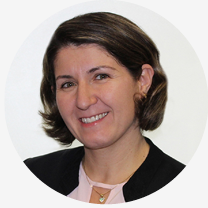 Fatiha Saïs is currently an Associate Professor HDR at the Computer Science Research Laboratory (LRI) of Paris Sud University, Paris Saclay University. Her research focuses on identity management in the Web of data, knowledge graph fusion, knowledge discovery from RDF data, and more recently on the time driven veracity assessment in knowledge graphs. Her work has been included in several national, industrial and european projects, involving domain experts in life sciences, geographical and audiovisual domains. She has published more than 50 research papers in national and international conferences and journals like, ISWC (International Semantic Web Conference), Journal of Web Semantics and Journal of Data Semantics. She served as a PC member for international conferences (ECAI, K-CAP, SAC, ESWC, ICCS, etc), national conferences (EGC, IC, BDA) and reviewed articles for International journals (KBS, JWS, KDE, JoDs, etc) and conferences (SIGMOD, ISWC, ESWC, EGC, IC, BDA, etc.).
Fatiha Saïs is currently an Associate Professor HDR at the Computer Science Research Laboratory (LRI) of Paris Sud University, Paris Saclay University. Her research focuses on identity management in the Web of data, knowledge graph fusion, knowledge discovery from RDF data, and more recently on the time driven veracity assessment in knowledge graphs. Her work has been included in several national, industrial and european projects, involving domain experts in life sciences, geographical and audiovisual domains. She has published more than 50 research papers in national and international conferences and journals like, ISWC (International Semantic Web Conference), Journal of Web Semantics and Journal of Data Semantics. She served as a PC member for international conferences (ECAI, K-CAP, SAC, ESWC, ICCS, etc), national conferences (EGC, IC, BDA) and reviewed articles for International journals (KBS, JWS, KDE, JoDs, etc) and conferences (SIGMOD, ISWC, ESWC, EGC, IC, BDA, etc.).
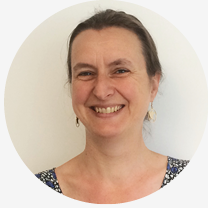
Marie-Laure Martin-Magniette is strongly involved in the analysis of genomic data and is at the interface between statistics and molecular biology.
She has been responsible for the statistical analysis of the data produced by the IPS2 transcriptomics platform for more than 15 years. She has acquired solid expertise in data standardization and differential analysis for DNA chip and high throughput sequencing technologies.
Since 2005, she has focused on the discovery and characteristics of underlying structures in genomic data with hidden Markov and mixing models. She developed these models in close collaboration with other biologists and statisticians.
Since September 2013, she has been leading the IPS2 Genomic Networks team. The project of his team is highly interdisciplinary and concerns the construction of genomic networks of the Arabidopsis thaliana plant model for the discovery of functional modules and the prediction of orphan gene functions involved in stress responses.
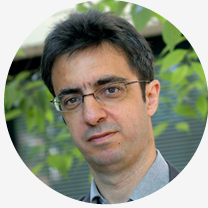
Philippe Stoop is the Research & Innovation Director of the iTK company, based in Montpellier, one of the world leaders in agronomic decision support and connected objects for agriculture and livestock.
Doctor of Engineering in Agricultural Entomology, he worked in the Agronomy Department of InVivo in the evaluation of plant protection products before joining iTK in 2009.
He is a Corresponding Member of the Académie d'Agriculture de France (Section 9 Agrofournitures), and he wrote a contribution for the agricultural section of the Villani report "AI for Humanity".
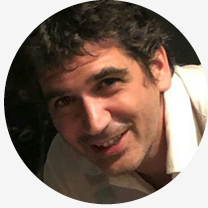
Robert Bossy is a research engineer in the Bibliome team (INRA) and his focus is on the evaluation and application of Information Extraction methods in Life Sciences. He is the main developer of the Alvis suite, allowing the Bibliome team to experiment and transfer its methods to its partners. He has organized several editions of the BioNLP Shared Task competition during which international Artificial Intelligence teams are challenged.
Robert Bossy has a university degree in Systematics and a PhD in Logic of Life from Pierre and Marie Curie University.
 Sarah Cohen-Boulakia is a full Professor at the Laboratoire de Recherche en Informatique at Universite Paris-Sud. She has been working for fifteen years with multi-disciplinary groups involving computer scientists and biologists of various domains. She spent two-years as a postdoctoral researcher at the University of Pennsylvania, USA and 18 months at the Institute of Computational Biology (IBC) of Montpellier in Inria groups.
Sarah Cohen-Boulakia is a full Professor at the Laboratoire de Recherche en Informatique at Universite Paris-Sud. She has been working for fifteen years with multi-disciplinary groups involving computer scientists and biologists of various domains. She spent two-years as a postdoctoral researcher at the University of Pennsylvania, USA and 18 months at the Institute of Computational Biology (IBC) of Montpellier in Inria groups.
Locally she is member of the Center for Data Science steering committee.
S. Cohen-Boulakia’s research interests include provenance and design of scientific workflows, reproducibility of scientific experiments, integration, querying and ranking in the context of biological and biomedical databases. She is actively involved in the CNRS GDR MaDICS on data sciences and takes the lead of the GDR in January 2020.
She is strongly involved in teaching activities of the computer science department: Master of Computer Science, Master of Bioinformatics, Vice-President of the departement in charge of the coordination of the undergraduated program since 2017.
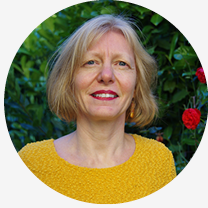 Sophie Schbath is Director of Research in Statistics at INRA. She heads the MaIAGE unit, "Mathematics and Applied Informatics, from Genome to Environment", at the INRA research centre in Jouy-en-Josas, University of Paris-Saclay. She co-directed the GDR of Molecular Bioinformatics from 2006 to 2013 and then chaired the Société Française de BioInformatique (SFBI) from 2010 to 2016. She has been the scientific manager of the Migale bioinformatics platform since 2016. His research interests are in bioinformatics at the interface of mathematics, computer science and biology, both in the development of new methods and in the continuing training and development of bioinformatics services integrating different data and calculations.
Sophie Schbath is Director of Research in Statistics at INRA. She heads the MaIAGE unit, "Mathematics and Applied Informatics, from Genome to Environment", at the INRA research centre in Jouy-en-Josas, University of Paris-Saclay. She co-directed the GDR of Molecular Bioinformatics from 2006 to 2013 and then chaired the Société Française de BioInformatique (SFBI) from 2010 to 2016. She has been the scientific manager of the Migale bioinformatics platform since 2016. His research interests are in bioinformatics at the interface of mathematics, computer science and biology, both in the development of new methods and in the continuing training and development of bioinformatics services integrating different data and calculations.
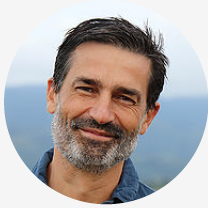
Yann-François Bizouerne is a digital transformation project manager at Bayer CropScience.
With an academic background in molecular biology and bioinformatics, he has been working for more than 20 years in R&D (Pharma then CropScience) with a particular focus on the digital transformation of different groups (breeding, trait research, regulatory science).
Yann co-leads the Innov4Ag program at LifeHub Lyon (https://www.lifehublyon.bayer.com/) to accelerate digital transformation within Bayer CropScience, through co-creation and incubation of startups in the field of plant protection.






